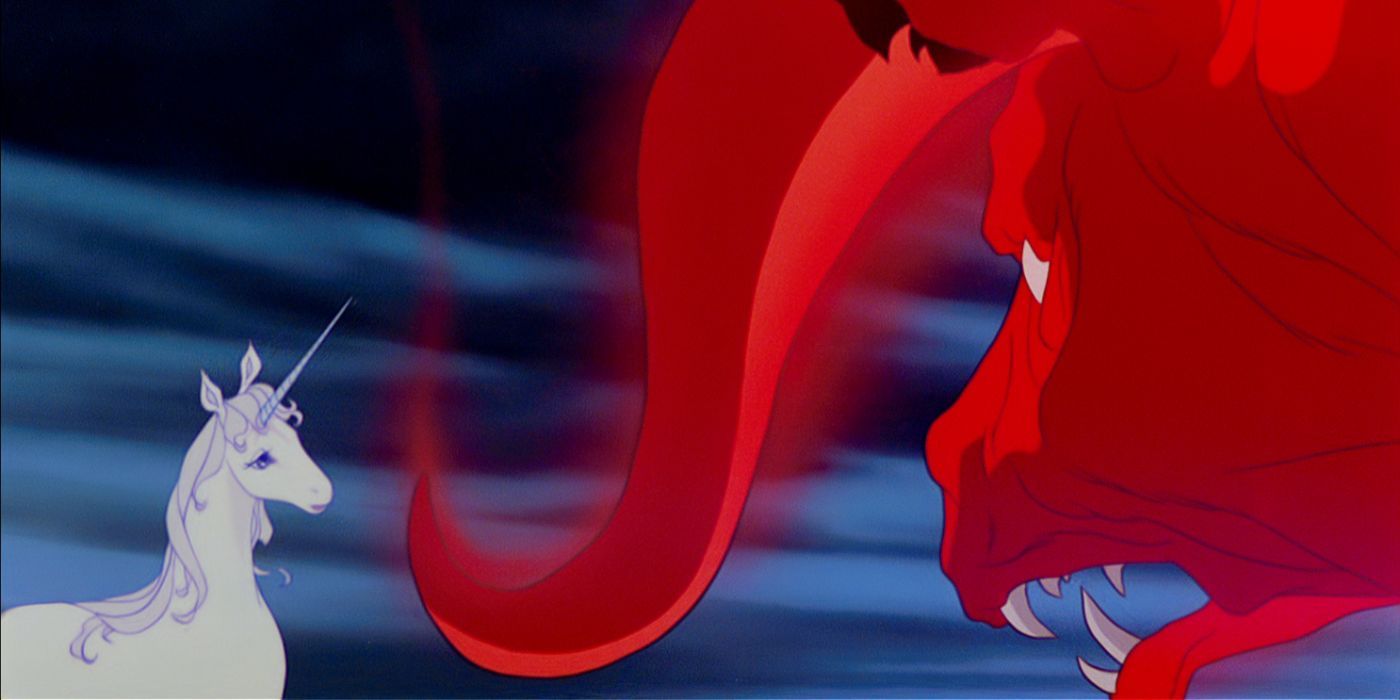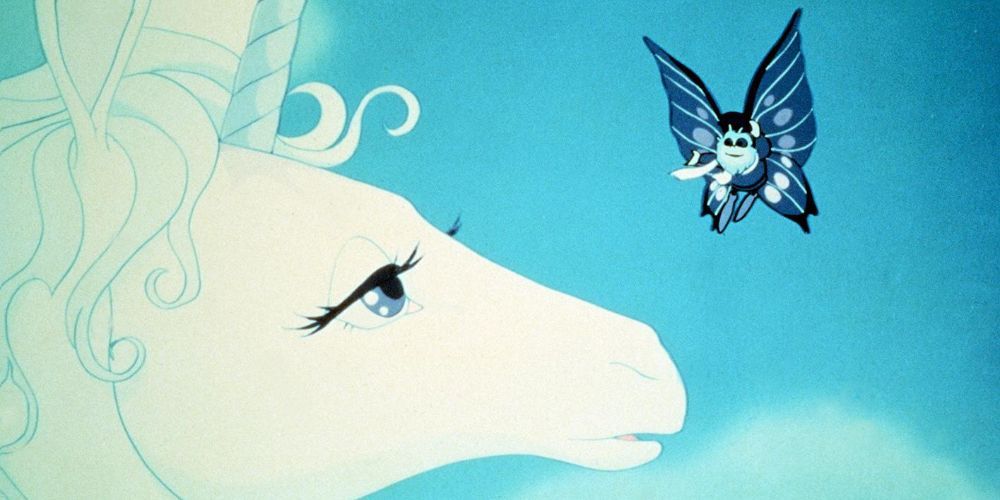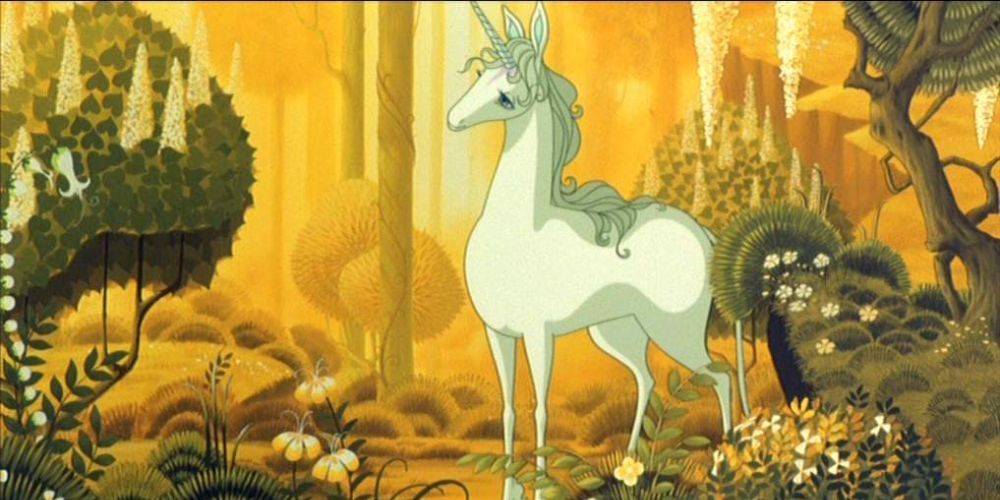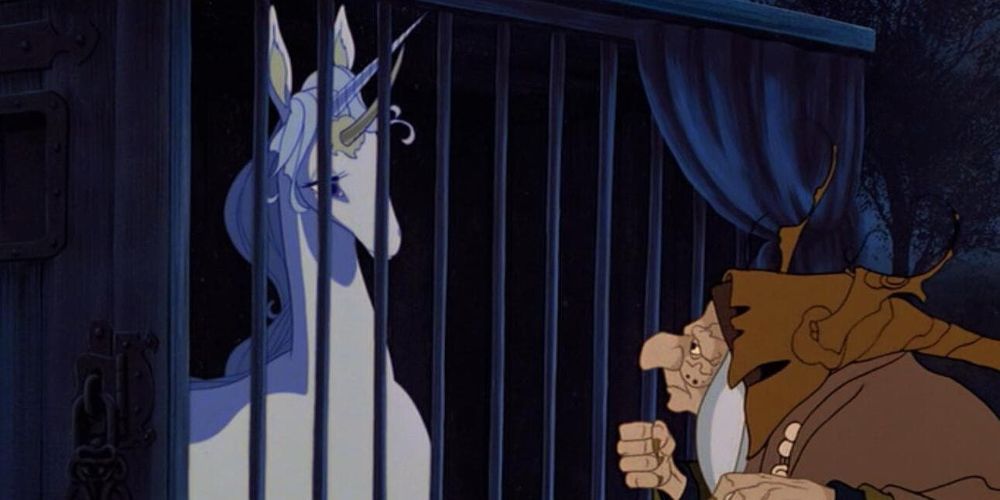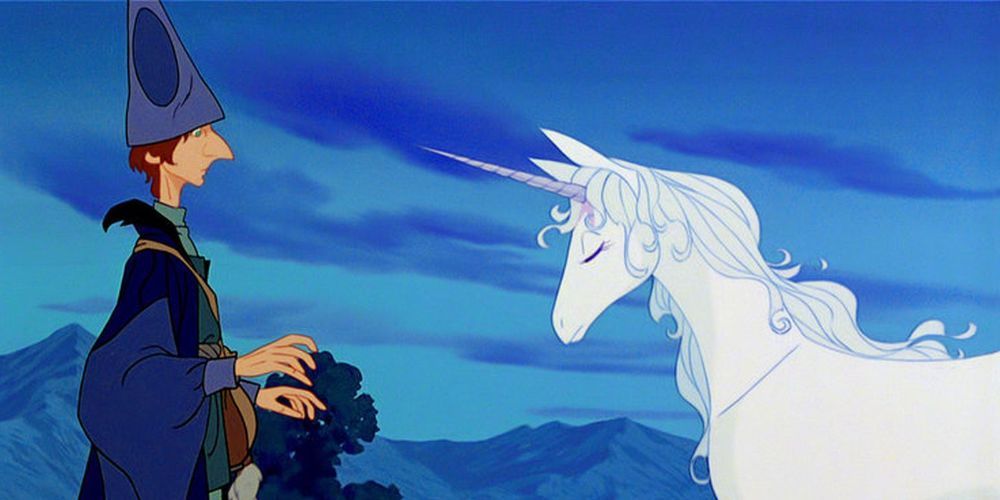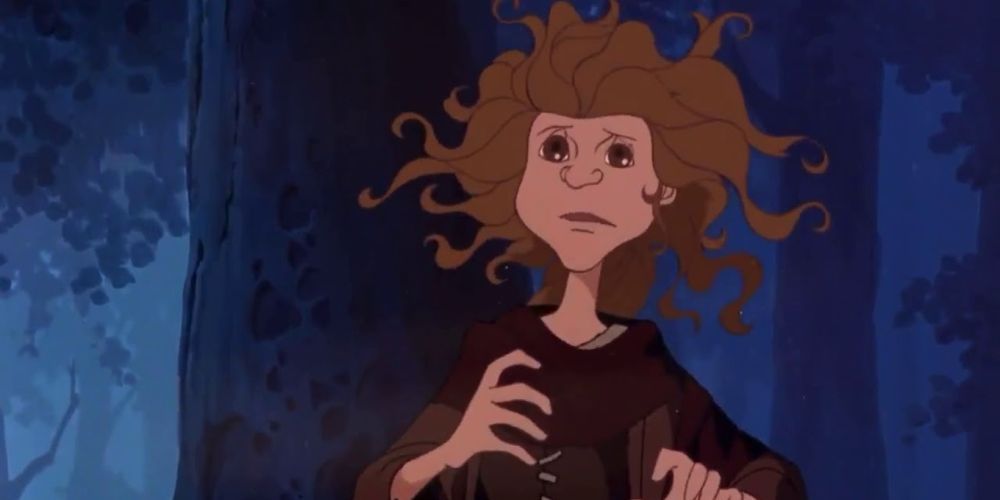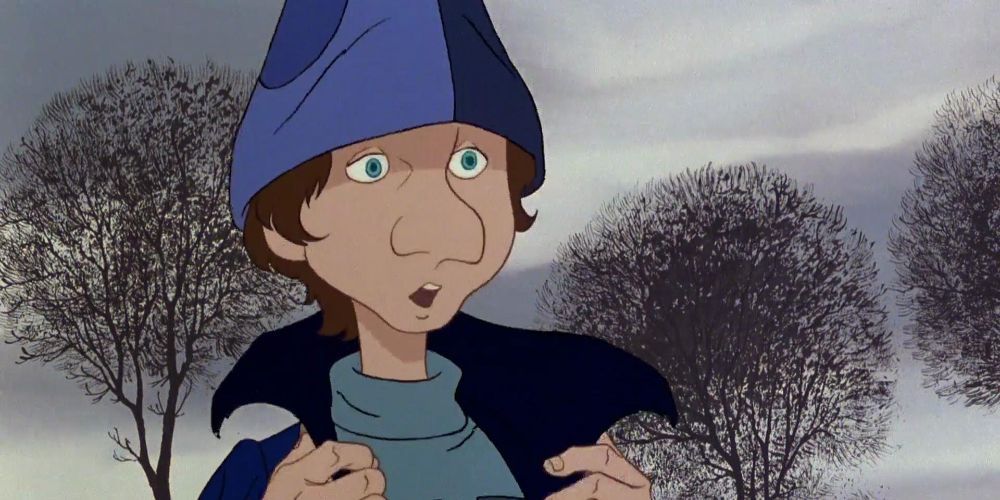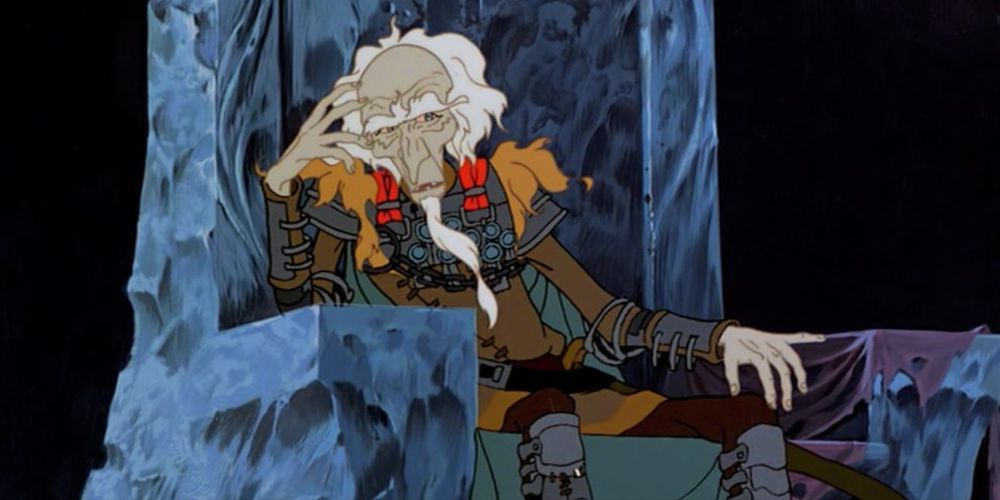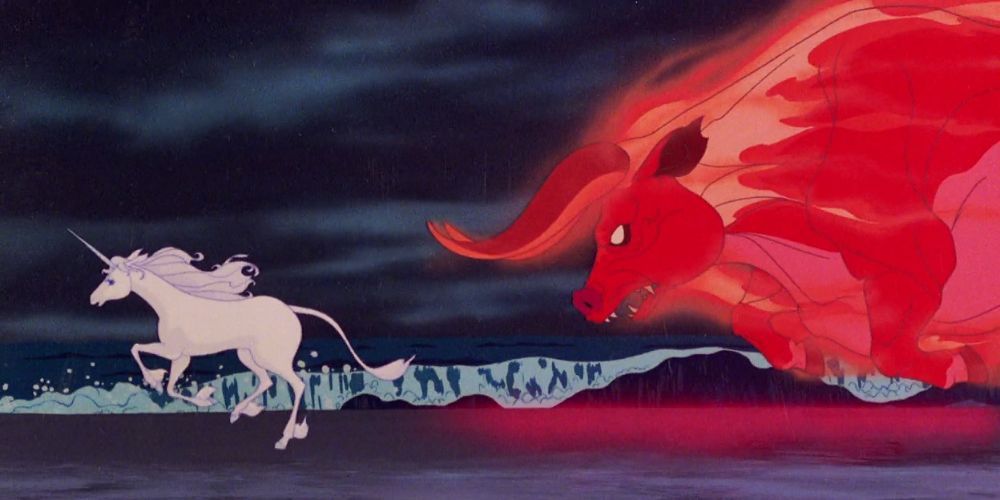Forty years ago, Peter S. Beagle's novel The Last Unicorn was released as an animated movie. Produced by Rankin/Bass production, it tells the story of an immortal unicorn who learns that she is the last of her kind. After listening to the rambling of a butterfly that mentions a Red Bull, she leaves her forest to learn the truth, encountering new friends, enemies, and life lessons along the way.
Though The Last Unicorn follows the trend of 80s fantasy films being darker than their predecessors, it has more rays of sunshine compared to others. It is written and structured like a whimsical fairy tale while also presenting many mature themes and characters to get audiences thinking. If you are a fan of fantasy stories, this is one you should check out regardless of age.
The Author Wrote the Script
When it comes to movie adaptations of books, they often live or die by the creative team. If lucky, the film will have a team who respects the work of the author while making changes where required, such as in Peter Jackson's The Lord of the Rings trilogy. However, more often than not, changes are made on the whim of studio executives, as seen in Jackson's The Hobbit films.
Fortunately, The Last Unicorn falls into the former category. Beagle wrote the script for the movie and was heavily involved with Arthur Rankin Jr. and Jules Bass, co-owner of the production company who co-directed the film. As such, while a few scenes from the book were cut for time, the film stays true to the book's themes and structure, and more than half of the dialogue was lifted from the pages.
Magical Songs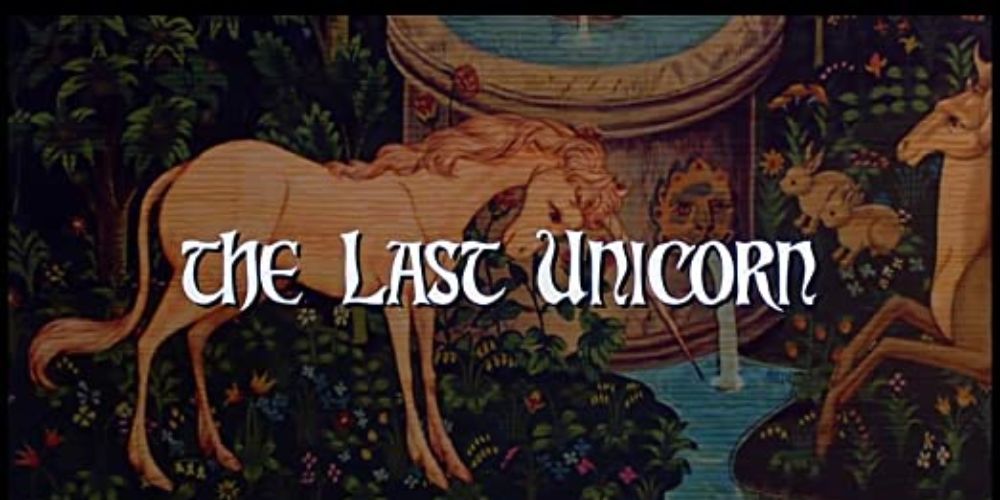
Music is essential to the movie experience, especially in the fantasy genre. It helps audiences feel specific emotions that cannot be conveyed through words or images, which is essential to a fantasy story. Opening numbers are of special importance since they set the tone for the entire film.
The creators of The Last Unicorn did not skip on the music budget. Composed Jimmy Webb and 70s rock band, America team up to create the perfect soundtrack for this more somber and reflective fairy tale. The title song for the film was so loved that it appeared on America's 1997 Best of America album.
Beautiful Animation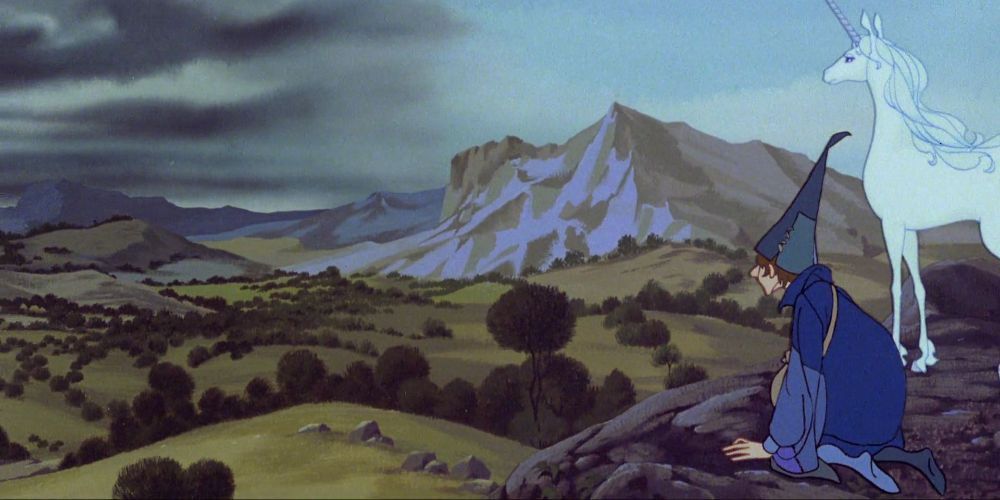
To animate The Last Unicorn, Rankin/Bass turned to the Tokyo-based company, Topcraft. The company had produced several cell-shaded movies for Rankin/Bass, including animated versions of both The Hobbit and The Return of the King. Both of these films had a distinct look inspired by classical European fairytale art, although the character designs were sometimes questionable.
The Last Unicorn is perhaps Topcraft's best-looking movie made for Rankin/Bass. The details put into the backgrounds make them feel like a larger-than-life fantasy world that invites you to dive in, and the character designs are stylized in a way that never feels out of place with the fairytale aesthetic. It is no wonder that many of Topcraft's best animators eventually formed Studio Ghibli when the company went bankrupt in 1985.
A Different Image of Unicorns
When people envision unicorns in media, chances are they see something like the My Little Pony franchise. Modern unicorns tend to be Technicolor creatures of friendship and goodness who use their magical powers to help others. They're also associated with nature, helping plants grow and watching over woodland creatures.
While that last example does fit the unicorn from the movie, that's where similarities end. Her personality is more apathetic than helpful, thanks to viewing the world as an unchanging immortal. This can cause her to appear callous towards the humans she meets, but it does not come from a place of malice.
Themes of Fantasy vs. Reality
A common theme that follows the unicorn involves individuals who shun the real world for one of make-believe. The witch Mommy Fortuna enchants the animals in her carnival to look like creatures of legend, but only if that is what the people attending the carnival want to see. A bandit named Captain Cully claims to be the living incarnation of Robbin Hood, even though his band of outlaws is a pale imitation of the Merry Men.
Both cases are used to explore the danger of dwelling in make-believe. The carnival uses the escapist desire of fantasy to scam vulnerable people out of money. Meanwhile, Cully's obsession with becoming a living legend blinds him to reality and makes him a pathetic joke. Through this, audiences see the dangers that come from trying to avoid your problems and live in fantasy.
A Unique Take on Immortality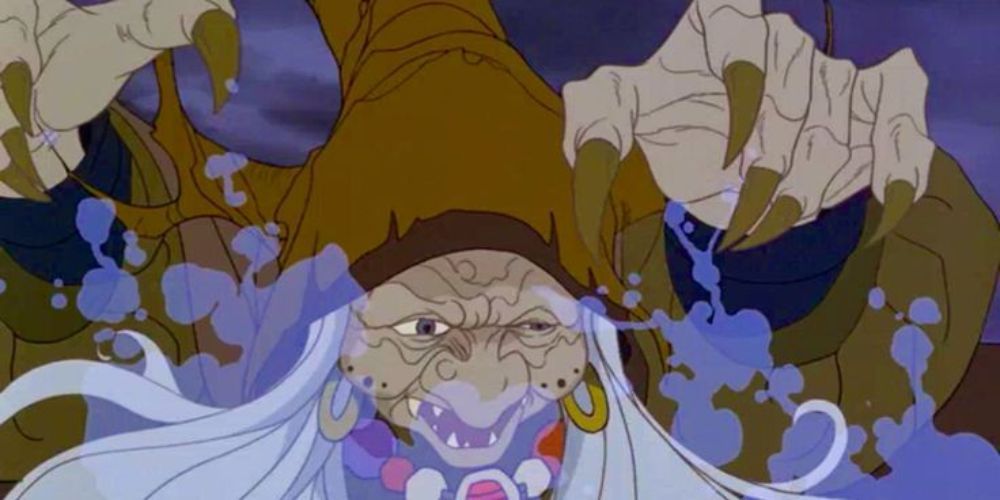
The concept of immortality is brought up many times in the film. Although immortal beings cannot die from age or illness, they are slow, if not completely resistant, to change. This is why the unicorn needed two hunters to tell her that her kind was missing: she had remained in her forest so long that the world changed around her.
Rather than living forever, the movie suggests immortality is achieved through being remembered. Mommy Fortuna holds a real harpy captive among her carnival, though she knows it will kill her one day. Yet she is OK with this because she will live in the harpy's memory as the witch who chained an immortal.
The Prince of Regret
Another byproduct of being immortal is that the unicorn is unable to form attachments as humans can. Since the world will grow old and die around here, the unicorn looks at humans and animals like water flowing in a river, easily replaced and never stationary. As such, she cannot feel love or regret.
Yet by the end of the movie, these concepts worm their way into the unicorn's heart. This comes with a price, as she will never be able to talk about regret and love with her kind. It's a powerful message that can find relatable to those who have experienced hardship in life and find it difficult to share those experiences.
The Power of Belief
While traveling the land, the unicorn discovers that humans can no longer see her for what she is. The world has been without unicorns for so long that only those magically inclined know her identity. To everyone else, she appears as a beautiful white horse.
The exception to this rule is Molly Grue, a camp follower of Captain Cully. She never lost faith that she would see a unicorn one day and so can instantly recognize one, though she is no longer a young maid like in the stories. Through Molly, the movie explores the idea that no matter your age, great things can happen if you never lose your youthful optimism.
Schmendrick the Magician
The unicorn's first ally is a magician traveling with Mommy Fortuna's circus. Unfortunately, Schmendrick is a bit of a bumbler, and his magic tends to go wild and against his wishes. Still, he is committed to helping the unicorn on her quest, both for her sake and in the hopes of mastering his powers.
Schmendrick is a wonderful character that is relatable to all ages. Despite his status as the world's worst magician, he never gives up and even maintains a somewhat comedic personality. He is a testament to the idea of practicing making perfect and that anyone can achieve greatness with enough time and dedication.
King Haggard
The unicorn's quest ultimately takes her to the land of King Haggard. He rules from a crumbling castle so poorly staffed that he and his son have to patrol the walls. This is due to his inability to find joy in anything except for unicorns.
Haggard's backstory makes him an almost Shakespearian villain. There is a tragic duality not seen in many villains: he wants to feel happy yet is willing to rob the world of beauty to do so. It also helps that he is brought to life by the voice of Sir Christopher Lee, who also voiced the character in the German dub.
The Red Bull
The final obstacle for the unicorn is Haggard's, Red Bull. A physical and ethereal beast, Haggard used it to capture all the unicorns for himself and maintain power over his country. Once it sets sight on its prey, the bull won't stop until it has them.
The Red Bull stands out among other fantasy monsters thanks to its single-minded nature. It moves and acts like a force of nature, making reasoning with it impossible. All of this was captured perfectly through Topcraft's animation, which makes the bull appear to have come from hell itself.

